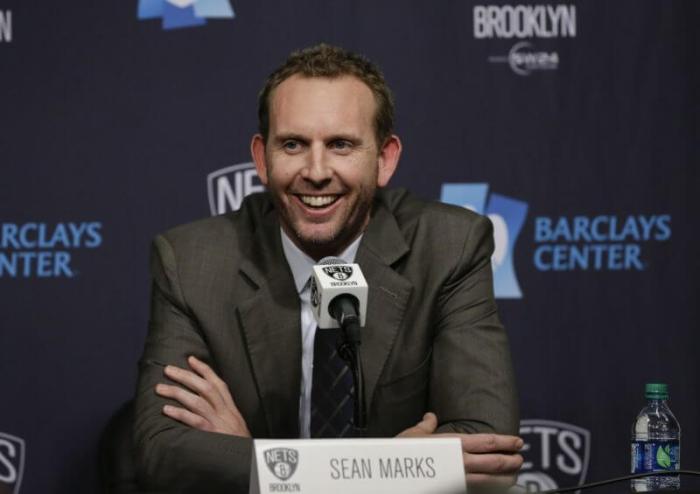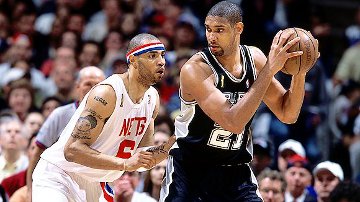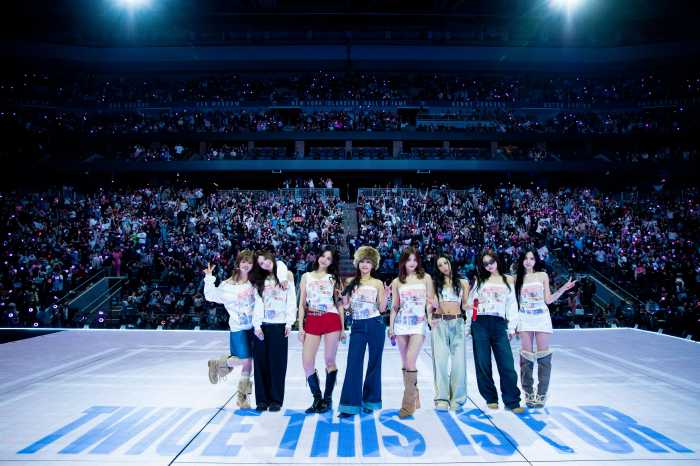The NBA’s direction and the inherent nature of competition dictates a binary; there are the teams worth watching, and there are the poster fodders. The winners dictate the narrative, and the losers are dictated their own irrelevance. For the past three (okay, five) (okay, ten) seasons, the Nets played the part of the latter, and currently chug along as what George Carlin would call “fine, not dandy;” they’re doing just all right, but not quite in the vicinity of dandyhood.
The paths to the former are clean and well-lighted: employ tradesmen that are good at their job — the “job,” in this case, participating in an effectual role that causes winning basketball — become a winner. The best at their job, the stars of the sport, are few and far between, and some shine more brightly than others.
In the past two years, the New Jersey Nets have openly constellation-gazed; they’ve struck out in free agency, barely missed out on Carmelo Anthony at the trade deadline, and then turned around and dealt pieces of the future for an immediate present (and brighter star). Now, they serve Superman, in hopes he executes a decision off the court as well as he does on it.
Regardless of the result — and I see three — the Nets have fast-tracked their way to upward mobility:
1) The Nets acquire Dwight Howard at the trade deadline. This happens if Brook Lopez comes back healthy, Otis Smith can’t make a deal work with Los Angeles, and Dwight makes his intentions to bolt at the end of the season 100% unequivocally clear (which he hasn’t yet). This is the “safest” option for the Nets — mostly, cause, y’know, they get Dwight Howard and all.
Though he’d technically opt out at the end of the season, pairing with Deron Williams in Brooklyn becomes all but assured. Details of the trade fluctuate, but the Nets would cede Brook Lopez, likely at least one of (if not both) Mehmet Okur and Kris Humphries, a bevy of draft picks, and at least one other backcourt player — whether that be Jordan Farmar, Anthony Morrow, DeShawn Stevenson, or Shawne Williams. There is no other player the Magic could possibly want. Yup. None. No chance they go after anyone else. (That sound you hear is my happiness crumbling.)
2) Dwight Howard finishes the season in Orlando and becomes a free agent. This is the highest-risk, highest-reward scenario — it allows the Nets to retain all of their draft picks and bird rights, and gives them the opportunity to sign Dwight Howard outright — …for $27 million less than Orlando can offer.
Dwight on the open market can do essentially whatever he wants, meaning any team with the capability to sign a maximum contract can sign him. Given his alleged “wish list,” that means the Nets and the Mavericks are the biggest contenders, with the Magic’s maximum-contract stipulation in play. The Nets would be able to sign one max contract, and retain the rights to Brook Lopez (after trading away or stretch-exceptioning one of Farmar/Morrow/Petro/Extra E Williams to clear up cap space), rights they’d either renounce or use in a sign-and-trade for more assets. They’d also still have their own (likely high-lottery) draft pick, and Houston’s lottery-protected first-rounder.
3) Another team acquires Dwight Howard at the deadline, or in free agency. This is the “doomsday scenario” for Brooklyn, as losing out on Dwight Howard likely means Deron Williams bolts at the end of the season, provided he, like Howard, is intrigued at the possibility of turning down $27 million. The narrative dictates that huddling in fear over this potential downfall is my go-to move, but fallen ashes provide potential for risen phoenix; Steve Nash is one of a dozen starting-quality point guards in 2012 free agency, and 30-40 other legitimate quality players join him on the market. The Nets still have a high draft pick in a deep draft class and a contortionist’s contractual flexibility. The Cavs had to wait a year after losing LeBron to legitimately rebuild, but if the Nets miss out on the superteam, they can blow it up and build from dust immediately.
The Nets enjoyed a superstar performance two nights ago from a locked-in superstar, one that carried them to victory in a game they’d planned on giving away by half-assedly throwing two defenders at a ballhandler 35 feet from the basket. Virtuosos tend to lend themselves to grander performances, but as 6-13 teams often do, the Nets also plan for immediate overhaul at a moment’s notice.
There’s a certain disloyalty that New Jersey exhibits; only Deron Williams is untouchable, the one most rumored to soon seek greener pastures. Brook Lopez, the team’s second-best player, was not offered a contract extension, a move that both highly disappointed him and makes absolute sense. New Jersey spared no player in last season’s seven-month trade extravaganza, and a power forward Nets brass compared to Amare Stoudemire, Kevin Garnett, and Tim Duncan got the transaction axe.
Disloyalty is not a criticism. As a practitioner of the practical, in a cutthroat sports world, one that punishes an overextension of loyalty to mediocrity, I fully welcome the Nets’ continuous commitment to flexibility over, well, commitment. Rather than toil in .450-.550 seasons for a decade, the Nets shoot for multiple stars from multiple spaces. They’ve caught one — one who writes the personal blog, “Road To Brooklyn” — and, allegiances be damned, they’re looking at the shine of another. Play the field until you outgrow it.
And should they miss? In the words of their most popular minority owner: on to the next one.

















